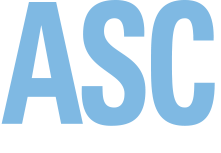The Great Lakes Over Time
As we celebrate the 50th anniversary of Wisconsin Sea Grant and reflect upon the countless milestones and achievements reached by the program towards the sustainable stewardship of the Great Lakes, it is also important to consider the ways in which the lakes and their watersheds themselves have— or haven’t—changed over time. What were the Great Lakes like hundreds of years ago? How have human activity and climate change affected the lakes? Who has historically made use of the Great Lakes, and who are its stakeholders now? The books below provide insight into the history, development and present of Great Lakes ecology, resources and society.
A Pictorial History of the Great Lakes by Harlan Hatcher and Erich A. Walter. New York: Bonanza Books, 1963.
A stunningly rare, almost encyclopedic, visual history of the Great Lakes. Contains maps, drawings, paintings, historic photographs and more.
Tales of the Great Lakes: Stories from Illinois, Michigan, Minnesota and Wisconsin by Secaucus, New Jersey: Castle, 1986.
A multi-author collection about formative events and people in Great Lakes history between 1875 and 1909.
Plants Used by the Great Lakes Ojibwa by James E. Meeker, Joan E. Elias and John A. Heim. Odanah, Wisconsin: Great Lakes Indian Fish and Wildlife Commission, 1993.
A thorough and comprehensive guide to the plants known to the Ojibwe, or Anishinaabe, people, created in the hopes that the Anishinabe language can live on.
Women and the Lakes: Untold Great Lakes Maritime Tales by Frederick Stonehouse. Gwinn, Michigan: Avery Color Studios, Inc. 2001.
This book introduces the reader to some of the women in history who impacted the Great Lakes, whether by heroic acts or by performing the mundane yet invaluable jobs that supported Great Lakes activity.
Death and Life of the Great Lakes by Dan Egan. New York: W.W. Norton & Company, Inc. 2017.
A harrowing look into the numerous man-made issues that threaten the health of the Great Lakes; a powerful call to action to save and protect one of mankind’s most precious resources.
The Great Lakes: The Natural History of a Changing Region by Wayne Grady. Vancouver, BC, Canada: Greystone Books, 2007.
An ecological overview of the Great Lakes region which highlights both the beauty and complexity of its natural world while also explaining the challenges it faces as the climate changes.
Climate Ghosts: Migratory Species in the Anthropocene by Nancy Langston. Waltham, Massachusetts: Brandeis UP, 2021.
A touching exploration of “ghost species,” animals whose species’ survival is hanging on by a mere thread in an increasingly hostile landscape, in the Great Lakes watershed and what we can do to help them survive.
Indigenous Literature and Knowledge in Libraries
In summer of 2022, the Wisconsin Water Library (WWL) hosted Maya Reinfeldt as a Sea Grant Community Engaged Intern. Reinfeldt’s goal was titled “Expanding Voices Heard in the Wisconsin Water Library.” Through a partnership with the Great Lakes Indian Fish and Wildlife Commission, Reinfeldt narrowed her focus to expanding the presence of Wisconsin Indigenous voices at the WWL. Throughout her work and research, Reinfeldt came to understand that there still existed a lack of sufficient Indigenous representation in many Wisconsin libraries, but that a desire to fill this gap was developing among librarians.
“So few Native nations are actually holders of their own histories.” — Katrina Phillips
To that end, Reinfeldt created a webpage on the WWL website where she compiled resources on topics such as holding Indigenous literature and Indigenous Knowledge in libraries, tribal and Indigenous librarianship, and the ethics of research and archives where they concern Indigenous peoples. The resources included on the webpage range from guidance documents, scholarly articles, other libraries’ existing pages on the topics, blogs, maps, wikis and more.
During the project, Reinfeldt collaborated with Katrina Phillips, an associate professor of history at Macalester College and a citizen of the Red Cliff Band of Lake Superior Ojibwe, whose advice and insight is quoted several times on the webpage. Reinfeldt’s hope is that libraries in Wisconsin, and elsewhere, can use this webpage as a beginning touchpoint in their endeavors to increase Indigenous representation and ethical collaboration with their Indigenous communities.
Reinfeldt would also like to emphasize that while this webpage provides an excellent introductory overview to the topics it covers, it is non-exhaustive, and true allyship to Indigenous communities will involve constant learning, listening, research, open communication, honesty and humility.—MR
Learn more at go.wisc.edu/a3ohz6.
Anyone in Wisconsin can borrow these books. Just email askwater@aqua.wisc.edu.



